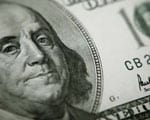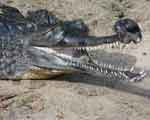Dallas Morning News editorial writer Jim Mitchell has written about the research of SMU economist Robert Lawson, co-author on the new report Economic Freedom of the World: 2011 Annual Report.
Lawson is the Jerome M. Fullinwider Chair in Economic Freedom in the O’Neil Center for Global Markets and Freedom at the SMU Cox School of Business.
Lawson has co-authored the widely-cited Economic Freedom of the World annual report for 20 years. The report provides an economic freedom index for over 140 countries. He helped found and still blogs periodically for www.divisionoflabour.com.
He and his co-researchers penned a commentary for The Huffington Post, “Economic Freedom of the World: Lessons for the U.S..”
DMN subscribers can see the editorial.
EXCERPT:
By Jim Mitchell
Dallas Morning News
So what nation has the greatest economic freedom? Surely it must be the United States, the land of capitalism and rugged individualism?Well it isn’t, according to a study by SMU researcher Robert Lawson and co-authors of Economic Freedom of the World Index. Key measurements of economic freedom include Size of Government: Expenditures, Taxes, and Enterprises; Legal Structure and Security of Property Rights; Access to Sound Money; Freedom to Trade Internationally; and Regulation of Credit, Labor, and Business.
By this framework, Hong Kong tops the list, for the highest rating for economic freedom, followed in order by Singapore; New Zealand; Switzerland; Australia; Canada; Chile; United Kingdom; Mauritius; and the United States. In fact in the last 10 years, the report notes, the world’s largest economy, the United States, has suffered one of the largest declines in economic freedom due mostly to higher government spending and borrowing and lower scores for the legal structure and property rights components.
And why is this important? According to the report:
- nations in the top quartile of economic freedom had an average per-capita GDP of $31,501 in 2009, compared to $4,545 for those nations in the bottom quartile, in constant 2005 international dollars.
- nations in the top quartile of economic freedom had an average growth in per-capita GDP between 1990 and 2009 of 3.07%, compared to 1.18% for those nations in the bottom quartile, in constant 2005 international dollars.
- In the top quartile, the average income of the poorest 10% of the population was $8,735, compared to $1,061 for those in the bottom quartile, and the average income of the poorest 10 percent in the top quartile is almost double the overall income per capita in the bottom quartile ($4,5459) and the poorest people in the most economically free countries are nearly twice as rich as the average people in the least free countries.
DMN subscribers can see the editorial.
SMU is a nationally ranked private university in Dallas founded 100 years ago. Today, SMU enrolls nearly 11,000 students who benefit from the academic opportunities and international reach of seven degree-granting schools. For more information see www.smu.edu.
SMU has an uplink facility located on campus for live TV, radio, or online interviews. To speak with an SMU expert or book an SMU guest in the studio, call SMU News & Communications at 214-768-7650.
 Dallas Morning News editorial writer Jim Mitchell has written about the research of SMU economist Robert Lawson, co-author on the new report
Dallas Morning News editorial writer Jim Mitchell has written about the research of SMU economist Robert Lawson, co-author on the new report 




